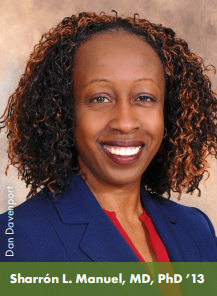
When Texas Senate Bill 8 went into effect, it triggered confusion and uncertainty for many health care workers. Called the “Heartbeat Act,” the law created some of the nation’s heaviest restrictions on reproductive health care. In effect, it bans abortions beyond six weeks of pregnancy, a stage during which the majority of people, especially those with irregular menstrual cycles, don’t know they are pregnant. The law also allows ordinary people to report anyone who performs or “aids or abets” an abortion, promising a $10,000 reward in civil court. That includes anyone who pays for an abortion, such as partners who don’t want their significant other to carry a pregnancy to term.
For those of us counseling pregnant patients, it also creates an unnerving gray area around what we could be prosecuted for. Is it safe to mention abortion as an option when it’s best for the patient’s health, or even to say the word “abortion” or “termination” during a consultation anymore? To recommend it from a physician’s perspective? To answer questions they have about the option? To give them resources for where else they can go?
The reality is that we found ourselves asking, “What could we be sued for, maybe even arrested for?” Medical workers are highly trained, but it is not as though we received a month off for retraining. The new law elbowed its way into the middle of a work week, as doctors and nurses juggling crises found themselves with a new, ill-defined dilemma.
While the risk of saying the wrong thing in a consultation was palpable, I also felt that my patients were in danger if they weren’t getting the appropriate counseling. As a medical professional, my job has always been to ensure the health of my patients. Thoroughness meant clearly presenting all options to a patient so that they can choose what is best for themselves, regardless of my own personal beliefs. Barred from counseling patients about termination, I felt like I was indirectly giving an opinion when I should have been giving options.
My colleagues and I became afraid even of situations in which termination of a pregnancy would previously have been considered a medically necessary choice for the patient, rather than an “elective” procedure. Some of these include:
- Ectopic pregnancy, a life-threatening condition in which the embryo implants somewhere other than the uterus, usually in a Fallopian tube
- A patient’s water breaks before the fetus viability window, around 24 weeks
- A patient has a psychological medical condition (for instance, PTSD as a result of rape) that leaves them unable to care for themselves, much less a newborn baby, and carrying the child to term may worsen their condition
- A patient has a physical condition that would be worsened by carrying a fetus to term (for instance, severe heart conditions, chronic kidney diseases or severe diabetes)
- A patient’s treatment plan would cause harm to a developing fetus, and delaying treatment could be detrimental to the health of the patient (for example, cancer treatments such as chemotherapy, surgery or radiation therapy)
These are just a few examples of situations in which terminating a pregnancy can be a positive choice for a patient’s health. Because the law felt unclear, I found myself repeatedly going to my higher-ups to find out whether I was allowed to intervene or whether it would be considered an abortion. Efficiency suffered. Still, it felt taboo even to discuss the subject amongst ourselves.
Medical training programs typically give medical professionals a chance to opt out of training for termination and to receive alternative training if they prefer. As an obstetrician/gynecologist, you can decide not to perform elective abortions, or to simply provide patient counseling. You can guide your practice any way you want, and you are never forced to do anything you don’t agree with or feel comfortable doing.
Laws like Texas SB8, on the other hand, restrict how we can practice medicine and counsel our patients. Instead of presenting all the options to them, our imposed silence leaves them to seek counsel elsewhere and find their own way to get past these laws. When you leave patients uninformed and responsible for finding their own way, you put them in danger.
Texas SB8 set the tone for other anti-abortion legislatures when it comes to restrictions, bans and “trigger laws” — abortion bans that would immediately go into effect following the overturn of Roe v. Wade, which took place in June of 2022 when the Supreme Court released the majority opinion for Dobbs v. Jackson. It’s an example of how legislation at the local level ultimately affects what happens on the national level.
For those who want to see change, that’s good news, too. Local politics are the lever by which informed citizens can move mountains, regardless of how far we are from Capitol Hill. Whether it’s forming a protest, writing to your elected officials, or learning more about how these laws are written, argued and passed, what you do trickles up. The laws passed in Congress and at your state capitol, whether uplifting or oppressive, directly impact each of us. In this critical moment, we should each take every chance to have an impact on how those laws are made.
Sharrón L. Manuel, MD, PhD ’13, is a reproductive endocrinology and infertility fellow at the University of Cincinnati. She previously practiced general obstetrics and gynecology in El Paso, Texas, where she also conducted research focused on women’s health.